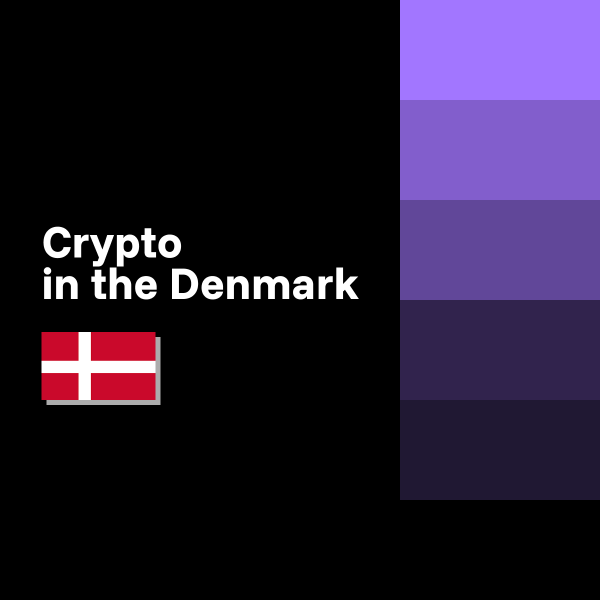Cryptocurrency is legal to own and trade in Denmark. The Danish Financial Supervisory Authority (DFSA) oversees certain crypto activities, though cryptocurrencies used as payment are generally not regulated. Some transactions may fall under rules for alternative investment funds, prospectuses, or anti-money laundering. Initial coin offerings may be subject to Danish securities law if they resemble public share offerings.
Crypto taxes in Denmark
Cryptocurrency in Denmark is treated as a taxable asset. Tax rules depend on how and how often the crypto is used.
The main types of taxation are:
- Capital Gains Tax (CGT). Net gains from selling or trading crypto are taxed at 27% up to DKK 61,000 for 2025. Gains above this threshold are taxed at 42%. Municipal surtaxes may add about 2-3 percentage points.
- Personal income tax. Crypto received through mining, staking, or as payment is taxed as ordinary income. Top combined state and municipal rates can reach roughly 56% for income above DKK 600,000.
The table below provides an overview of how taxes apply to different cryptocurrency activities.
| Transaction type | Tax applied |
| Buying & holding | No tax until you dispose of the asset |
| Selling/trading | 27-42% CGT |
| Mining/staking income | Personal income |
| Receiving cryptocurrency as payment | Treated like salary; taxed at marginal income rate plus AM-bidrag (labour market contribution) |
For official guidance, refer to the Danish Tax Agency’s crypto tax guidelines.
Crypto regulations and compliance rules
Several authorities in Denmark share responsibility for supervising the crypto sector. Each body oversees a specific part of the market:
- Danish Financial Supervisory Authority (Finanstilsynet) oversees crypto exchanges and wallet providers to ensure they follow financial regulations. It implements the EU MiCA framework and enforces anti-money laundering rules.
- Danish Tax Agency (Skattestyrelsen) manages crypto taxation, determines whether gains are taxable, and collects information from traders to ensure compliance.
- Danmarks Nationalbank monitors financial stability risks and, under MiCA, may provide input on stablecoins that could impact the Danish krone.
- Money Laundering Secretariat (Hvidvasksekretariatet) receives and analyzes reports of suspicious transactions from crypto service providers.
- Danish Business Authority (Erhvervsstyrelsen) supervises certain non-financial businesses under the Anti-Money Laundering Act and ensures compliance.
Crypto businesses in Denmark must follow the regulatory framework under the Danish Anti-Money Laundering Act.
Key requirements include:
- Essential AML checks. Businesses should conduct a risk assessment, maintain internal controls, monitor business relationships, and report suspicious activity to the Money Laundering Secretariat. It’s also necessary to keep records for at least five years.
- Know Your Customer (KYC) requirements. It’s required to verify customer identities using reliable sources, identify beneficial owners, understand the purpose of the relationship, and monitor transactions. High-risk situations, such as dealings with politically exposed persons (PEPs), require enhanced due diligence.
- Other obligatory procedures. Companies are to appoint an AML compliance officer, provide employee training, implement a whistleblower system, and register with the relevant supervisory authority when required.
Conclusion: the legality of cryptocurrency in Denmark
Cryptocurrency is permitted under Danish law and is subject to existing financial, anti-money laundering, and tax regulations. Businesses must meet obligations set by multiple authorities and follow AML and KYC rules to ensure compliance and transparency.
Investing in cryptocurrency involves significant risk and may result in the loss of your entire capital. Prices can be highly volatile. Past performance does not guarantee future results.
crypto experience
Unlock faster transactions with our highly secure crypto payment gateway


